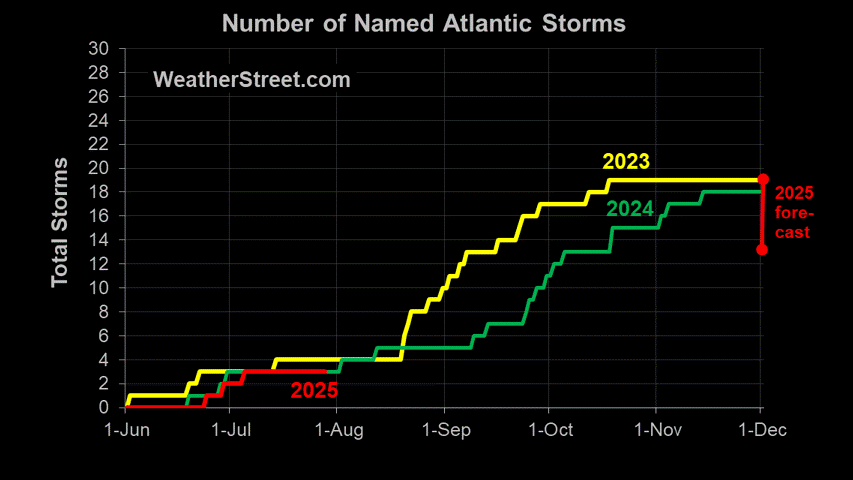Rare early December snow across the southland
A snow storm is currently depositing as much as a 6 inches of snow in New Mexico tonight and willforge a path across the southern states into the mid-Atlantic. This will be one cold wet weekend and most of us will see anywhere from a light dusting to a few inches in areas that typically do not see snow this early in the year, if at all.
Texans Brace for Late-Week Snowstorm (AccuWeather)

Snow along the Texas Gulf Coast is unusual because the cold temperatures and the moisture have to arrive at the same time. Typically a cold front will come through the area when the temperatures are rather high, anywhere from the 50's to the 70's. After the front passes the region, the temperature begins to drop slightly. Sometimes the temperature the following day will stay cool due to heavy cloud cover. That night the clouds move away or dissipate and the temperature plummets to as low as 30 degrees or so.
 before turning north towards the mid-Atlantic states. Current forecasts are indicating that the snow will be light if at all but even flurries are unusual in the deep south during the winter let alone this early in the year.
before turning north towards the mid-Atlantic states. Current forecasts are indicating that the snow will be light if at all but even flurries are unusual in the deep south during the winter let alone this early in the year.
While we may see some whiteness on the ground Saturday, I don't expect that it will last very long. The further north you go into the mountains will be the areas that see better chances of accumulation.
Graphics courtesy of AccuWeather
Texans Brace for Late-Week Snowstorm (AccuWeather)
A new storm with accumulating snow will push eastward across Texas and Louisiana late Thursday night and Friday.
After depositing up to half a foot or more of snow over the mountains of eastern New Mexico tonight, this new storm will turn its eyes on Texas.
People in Waco, Austin, San Antonio and Houston are next in line for their first snowfall of the season Friday.

Snow along the Texas Gulf Coast is unusual because the cold temperatures and the moisture have to arrive at the same time. Typically a cold front will come through the area when the temperatures are rather high, anywhere from the 50's to the 70's. After the front passes the region, the temperature begins to drop slightly. Sometimes the temperature the following day will stay cool due to heavy cloud cover. That night the clouds move away or dissipate and the temperature plummets to as low as 30 degrees or so.
Many times we got a blue norther - clear skies and a driving wind the next day. Bitter cold but no precipitation. All the precip came as warm rain the day before.
Chance of snow Friday is up in the air (Houston Chronicle)
To get snow in our typically tropical clime the timing must be just right, with cold air arriving at the same time as atmospheric moisture. It seems plausible this will happen Friday afternoon.The storm will stick to the southern states dropping snow in Louisiana, Mississippi and Georgia
The National Weather Service says much of the area could get from a trace to an inch of snow.
But Houston only sees snow, on average, about every four years. And never this early in the season: Friday's, if it comes, would be the earliest snowfall ever in Houston, beating the record tied last year by six days. So forecasters like Fred Schmude, of ImpactWeather, are wary.
“Most of our forecasting data is caught right in the middle, meaning any subtle change in the position of the upper level disturbance will have huge consequences on how much, if any, snow falls across the Greater Houston area,” he said.
 before turning north towards the mid-Atlantic states. Current forecasts are indicating that the snow will be light if at all but even flurries are unusual in the deep south during the winter let alone this early in the year.
before turning north towards the mid-Atlantic states. Current forecasts are indicating that the snow will be light if at all but even flurries are unusual in the deep south during the winter let alone this early in the year.Accumulating Snow from Jackson to Winston-Salem (AccuWeather)
Accumulating snow is coming to places in the South Friday night into Saturday that rarely see such an event even in the dead of winter.
A swath of up to 6 inches of snow will stretch from parts of northeastern Texas to central Louisiana to central Mississippi, northern Alabama, and the mountains of northern Georgia and western North Carolina.
While some snow will melt as it falls on highways in this area, a burst of snow could quickly coat roads for a short time. Bridges and overpasses, which tend to cool more quickly, could be especially hazardous.
Snow is most likely to weigh down trees in the area of the 6-inch swath. Sporadic power outages could result.While some flakes will fly, odds are against an accumulation in metro areas of Montgomery, Atlanta, Greenville, Charlotte and Raleigh-Durham.
While we may see some whiteness on the ground Saturday, I don't expect that it will last very long. The further north you go into the mountains will be the areas that see better chances of accumulation.
Graphics courtesy of AccuWeather









<< Home